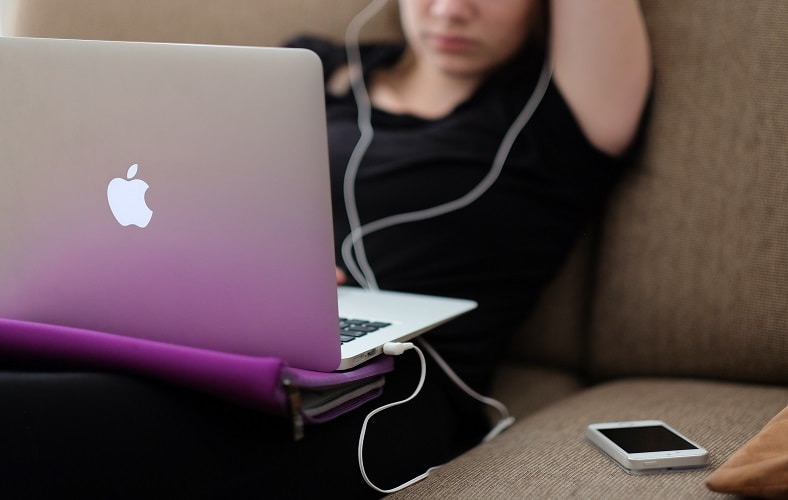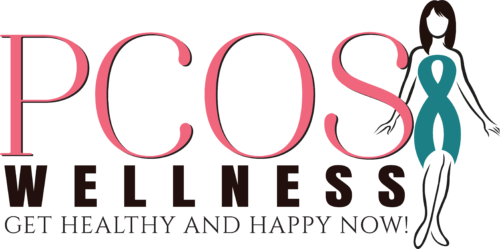
PCOS and Mental Health: Teens with PCOS
You’ve been growing faster than everyone else, especially around the middle. Like, uncontrollable, where the heck did this come from and how can I get rid of it now before anyone else notices, weight gain. You’ve got acne and hair issues that go way, way beyond the usual. You’re feeling anxious, self-conscious, embarrassed, and ridiculously tired. You’re missing out on a lot of life, like parties, being on sports teams, cute clothes, and getting asked out. Teens with PCOS find all of this is really hard to cope with.
I know all of this is incredibly unfair (and I know because I’ve been there, done that – except nobody knew that I had PCOS until I was in my early twenties). And all because of this lousy thing called PCOS. You probably think it’s a life-wrecker, and your real life has hardly begun!
It’s true. PCOS is a challenge. Puberty is a challenge. Adolescence is a challenge. PCOS + adolescence = unprintable! Right? If you’re in the 10 – 18 age range, and you’ve already got a PCOS diagnosis, or you suspect one, this post is for you, your parents, and maybe your doctor. How do you handle the emotional side of it? Since you can’t separate the body from the mind, I’m offering a mix of the physical and psychological here:
Depression
Depression is complicated, and it starts with getting a diagnosis from a licensed psychotherapist. Ask your doctor for a referral, or search the Therapist Finder on Psychology Today to find somewhere near you, or who takes your insurance, and has the right expertise. Help yourself by getting out in the sun for 20 minutes each day, and making sure you get at least eight hours of sleep per night.
Anxiety
Anxiety and panic disorders can also be complicated and are also best helped by a licensed psychotherapist. If you live in California, come see me in person or via teletherapy! The best ways to DIY it with anxiety include getting some exercise every day, practicing meditation, and utilizing techniques found in David Burns’ The Feeling Good Handbook. [Note: This is NOT an affiliate link.]
Overweight
Don’t go on a diet. And don’t believe what everyone says. As a teen with PCOS, you are still growing, and your weight hasn’t settled down to its adult set point. Diets and PCOS don’t mix. Lifestyle changes and eating plans work. The Health at Every Size approach works. We want to engage in respectful, compassionate self-care, not brutal exercise plans and calorie restrictions that ultimately lead to rebellion and unhealthy behaviors.
Skin issues
Cleaning up your diet (mainly, adding in more fresh produce) will help teens with PCOS clean up your skin. If that’s not enough, consult with a dermatologist, a doctor who treats skin problems.
Hair issues
If you’re losing hair on your head, or have too much hair growing on your face, arms, or body, have a dermatologist take a look at the problem. Hair loss may result from stress. There are prescription medications, such as spironolactone, that can help with hair issues while you’re working on improving your underlying metabolic health. Don’t give up; hair issues can take quite a while to resolve, sometimes a year or more.
Spiritual
Spiritual practices, if you have a belief system or spiritual community, can be very helpful in supporting you when times are tough, offering perspective about “why is this happening to me?” and “what now?” kinds of questions. They don’t replace things like diet, exercise, sleep, sunshine (and maybe prescription medications or supplements), but they help a lot.
Gratitude
Gratitude is an ongoing daily practice, not a one-time thing. Teens with PCOS find it can be easy to forget how much we have. A daily gratitude practice, in which you list five to ten things you’re grateful for, every morning as soon as you get up, or every night before bed, will help decrease depression and improve mood.
Acceptance
Acceptance is the long-term goal. Women and teens with PCOS know they have a problem and are often focused on getting rid of or fixing the problem. There is no fast or permanent fix for PCOS. I’m sorry. There is the opportunity to have the best health possible, and to have a very long, relatively healthy, and quite happy life.
Take some time to write down your thoughts as a teen with PCOS in a journal after you read through this post a couple of times. Pick one thing to start working on. Share it with someone you trust and ask for support. And let me know how you’re doing on my PCOS Psychology page on Facebook (I know, Facebook is for old people, but humor me here!). Also, check out my PCOS Wellness for Teens page!
Session expired
Please log in again. The login page will open in a new tab. After logging in you can close it and return to this page.
